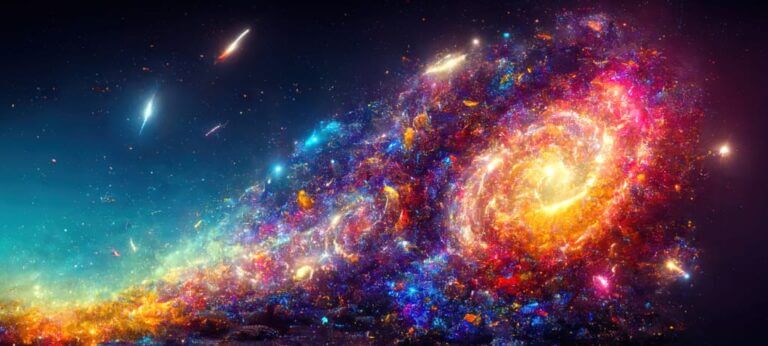The universe is a vast and fascinating place that we can’t help but feel in awe of. From the smallest particles to the largest galaxies, there’s so much to learn and discover. Here are 15 mind-blowing facts about the universe that will expand your knowledge and inspire you.
1. The universe is estimated to be 13.8 billion years old.
Our universe is ancient, and its age is determined by measuring the cosmic microwave background radiation, which is the afterglow of the Big Bang. Scientists believe the universe began with a rapid expansion known as inflation, which lasted for a fraction of a second before slowing down and eventually forming the stars, galaxies, and planets we see today.
2. There are more stars in the universe than grains of sand on all the beaches on Earth.
The universe is home to trillions of stars, many of which are much larger and brighter than our sun. While it’s impossible to know precisely how many stars there are in the universe, estimates suggest that there are more than 100 billion galaxies, each containing hundreds of billions of stars.
3. Black holes are some of the most mysterious objects in the universe.
Black holes are formed when massive stars collapse in on themselves, creating a singularity so dense that not even light can escape its gravitational pull. While we can’t see black holes directly, we can observe their effects on nearby stars and gas.
4. The closest black hole to Earth is about 1,000 light-years away.
While black holes are common in the universe, the nearest one to Earth is about 1,000 light-years away, making studying challenging. However, astronomers are using advanced telescopes and instruments to learn more about these mysterious objects.
5. The largest known structure in the universe is the Hercules-Corona Borealis Great Wall.
This enormous structure is a collection of galaxies that spans more than 10 billion light-years across. To put that into perspective, the Milky Way galaxy is just 100,000 light-years across.
6. The largest known star, VY Canis Majoris, is so big that it could fit 9.3 billion suns inside.
7. The universe is expanding at an accelerating rate.
Not only is the universe expanding, but it’s also accelerating, meaning that the space between galaxies is increasing at an increasing rate. This discovery earned three scientists the Nobel Prize in Physics in 2011.
8. There are more possible iterations of a game of chess (approximately 10¹²⁰) than there are atoms in the observable universe.
9. There may be multiple universes beyond our own.
The idea of multiple universes, or a multiverse, has been around for decades, but it remains a topic of intense debate among scientists. The theory suggests that there may be many other universes beyond our own, each with its unique properties and laws of physics.
10. There are more than 100 billion galaxies in the observable universe.
11. There is no center of the universe.
Contrary to popular belief, there is no central point in the universe. Instead, the universe is expanding uniformly in all directions, meaning that every point in the universe is the center.
12. The center of the Milky Way galaxy is home to a supermassive black hole that is 4 million times the mass of our sun.
13. The cosmic microwave background radiation is the oldest light in the universe and can be seen everywhere we look.
14. The universe is mainly made up of dark matter and dark energy.
Scientists estimate that dark matter is about 27% of the universe, while dark energy accounts for about 68%. This means that the matter we can see, such as stars and galaxies, makes up just 5% of the universe.
15. The Big Bang theory is the most widely accepted explanation for the universe’s origin, but there are still many mysteries we don’t fully understand.
Despite centuries of scientific study, there is still so much we don’t know about the universe.
As you can see, the universe is full of surprises and mind-bending facts. While we may never fully comprehend its vastness and complexity, it’s exciting to know that there’s always something new to discover.
